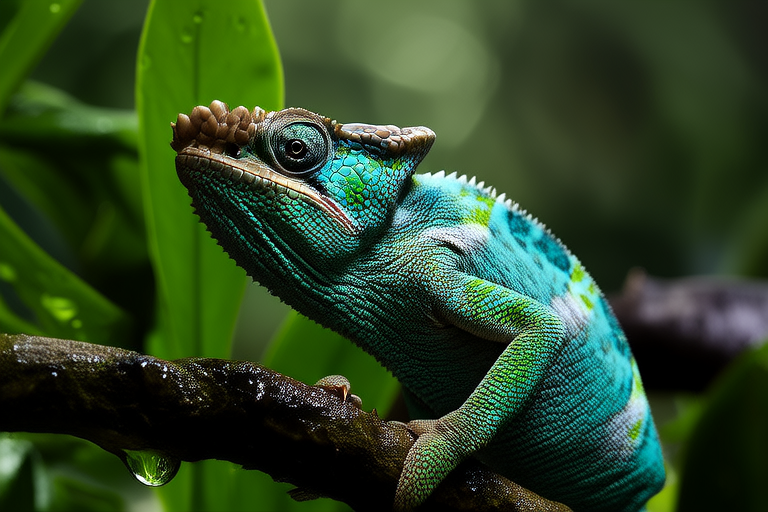Welcome to the Splendid Japalure Care Guide
Whether you’re a first-time owner or an experienced caregiver, this guide will help you provide the best possible care for your Japalure. These unique creatures require special attention to thrive, and understanding their needs will ensure they lead happy, healthy lives.
Understanding Japalures
Japalures are fascinating creatures with a distinct charm that captivates many. They are known for their vibrant colors, playful nature, and unique behaviors. Originating from a blend of exotic locales, Japalures have been selectively bred to enhance their splendid characteristics. With proper care, they can be wonderful companions.
Housing Your Japalure
Selecting the Right Environment
Your Japalure’s home should be spacious, safe, and stimulating. Choose a cage that allows ample room for movement and exploration. The cage should be large enough to accommodate various toys, perches, and hideouts. Ensure it has multiple levels for climbing and resting.
Creating a Comfortable Habitat
Provide soft bedding such as shredded paper or recycled paper products. Avoid using pine or cedar shavings, as these can cause respiratory issues. Incorporate natural elements like branches for climbing and chewing, and ensure there are hiding spots for security.
Maintaining Cleanliness
Regular cleaning is crucial to prevent illness. Clean the cage weekly, replacing soiled bedding and disinfecting surfaces. Use pet-safe cleaners to avoid toxic residues. Regularly check for signs of wear and tear in the cage to ensure it remains secure and safe.
Diet and Nutrition
Balanced Diet
A balanced diet is vital for your Japalure’s health. Offer a mix of fresh fruits and vegetables, high-quality pellets, and occasional treats. Leafy greens like kale, spinach, and dandelion leaves are excellent choices. Avoid feeding foods high in sugar or fat, such as avocados, chocolate, or processed snacks.
Feeding Schedule
Feed your Japalure twice daily, once in the morning and once in the evening. Monitor portion sizes to prevent overeating, which can lead to obesity. Fresh water should always be available, and consider using a water bottle to keep the water clean and fresh.
Supplements
Vitamin and mineral supplements may be necessary if your Japalure’s diet lacks essential nutrients. Consult with a veterinarian to determine the appropriate supplements and dosages. Ensure that any supplements are specifically formulated for Japalures.
Healthcare and Wellness
Regular Check-ups
Annual veterinary visits are essential for maintaining your Japalure’s health. During these visits, your veterinarian can perform routine examinations, vaccinations, and screenings for potential health issues. Early detection of problems can significantly improve outcomes.
Common Health Issues
Some common health issues include respiratory infections, digestive problems, and skin conditions. Be vigilant for signs of illness, such as lethargy, loss of appetite, or changes in behavior. If you notice any concerning symptoms, consult your veterinarian immediately.
Pest Control
Parasites can pose a threat to your Japalure’s health. Regular grooming and environmental sanitation can help prevent infestations. Use pest control products specifically designed for Japalures under veterinary guidance.
Behavior and Training
Understanding Japalure Behavior
Japalures are social creatures that enjoy interaction with their caregivers. They are generally curious and playful, but some may be more reserved or shy. Understanding your Japalure’s personality will help you tailor interactions to their preferences.
Training Techniques
Positive reinforcement is the most effective method for training Japalures. Reward good behavior with treats, praise, or playtime. Be patient and consistent, and avoid punishment, which can lead to fear and stress.
Handling and Socialization
Gentle handling is essential for building trust. Start by allowing your Japalure to get used to your presence before attempting to hold them. Gradually increase the duration and frequency of handling sessions. Socializing your Japalure with other pets and people can help them become more confident and adaptable.
Common Challenges and Solutions
Chewing Habits
Japalures have a strong urge to chew, which can lead to destructive behavior if not managed properly. Provide appropriate chew toys made from safe materials. Rotate toys regularly to maintain interest and prevent boredom.
Nocturnal Activity
Japalures are nocturnal animals, meaning they are most active during the night. To encourage daytime activity, engage your Japalure in stimulating activities during the day. Create a bedtime routine that signals it’s time to rest.
Separation Anxiety
Some Japalures may experience separation anxiety when left alone. Gradually acclimate your Japalure to periods of solitude by leaving them for short intervals and gradually increasing the time. Providing comfort items, such as familiar toys or blankets, can also help.
Unique Aspects of Caring for Japalures
Playful Nature
Japalures are known for their playful antics, making them delightful companions. Engage them in interactive games and activities to keep them mentally stimulated and physically active.
Social Interaction
Encourage social interaction with your Japalure through gentle handling, play, and conversation. This helps build a strong bond and ensures they feel secure and loved.
Environmental Enrichment
Create a stimulating environment with various toys, climbing structures, and hiding places. Rotate items periodically to maintain interest and prevent boredom. Environmental enrichment promotes overall well-being and enhances quality of life.
Conclusion
Caring for a Japalure is a rewarding endeavor that requires dedication and commitment. By providing a nurturing environment, a balanced diet, and regular healthcare, you can ensure your Japalure leads a long, healthy, and joyful life. Embrace the unique qualities of your Japalure and celebrate the splendid moments shared together.
